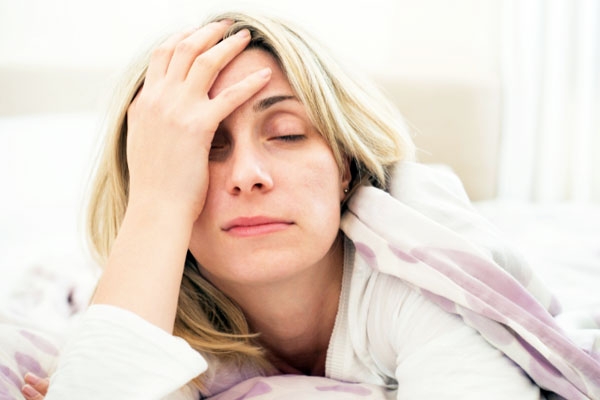
(Image source from: Canva.com)
There are two distinct groups: those who can swiftly drift off to sleep the moment their head touches the pillow, and those who endlessly scroll, unable to find rest. If this description resonates with you, there's a strong chance you belong to the latter category or know someone who does. Disrupted sleep patterns and insomnia are growing concerns in India, and rightfully so, as a lack of adequate rest can lead to a range of physical and mental health complications. It's clear that many Indians are grappling with sleep debt - the disparity between the sleep their body requires and the sleep they actually get. In 2023, the Agewell Foundation conducted a comprehensive study involving over 5,000 individuals across 20 states, revealing that more than half (around 52 percent) struggle to achieve deep, restorative sleep. Furthermore, 69.8 percent of participants reported sleeping for less than six hours per day, and 51.68 percent faced difficulties in attaining truly restful sleep. A 2023 paper available on ResearchGate, which reviewed 100 sleep studies in India, found that 1 in 4 Indians suffers from insomnia, and nearly half of the population experiences sleep-related issues.
Another survey conducted by social networking site Local Circles in 2024 of 41,000 participants from 309 districts in India over a 12-month period found that 61 percent of respondents had slept less than six hours in the previous year.
There are many reasons why a person does not sleep. Sleep is a very complex process and is influenced by many factors – physical, mental and environmental. It is important to know what disturbs your sleep so that you can sleep better. Dr. Vibu Gawatra, a Delhi-based pulmonologist, sleep specialist and allergist, offers several reasons:
Screen time: Blue light from phones, tablets and computers can affect the production of melatonin, a hormone that regulates sleep. Using a screen before bed can trick your brain into thinking it's still daytime.
Stress and Anxiety: High levels of stress and anxiety can make it difficult to relax and sleep. Worries about work, finances, and relationships may be racing through your mind.
Irregular sleep schedule: "Sometimes you go to bed at 11 o'clock and sometimes they can go to bed," says Dr. Dixit Kol Thakur, sleep specialist at Apollo Spectra Hospital in New Delhi. I don’t understand the change.” Sleep cycle Disturbed sleep patterns, e.g. Some changes, such as changes in how you go to sleep and when you wake up, can disrupt your body's internal clock (circadian rhythm) and make it harder to fall asleep. Your body's rhythm, also known as your circadian rhythm, is your body's natural clock that regulates your sleep-wake cycle and repeats itself approximately every 24 hours.
Caffeine and stimulants: Taking caffeine and other stimulants in the afternoon or evening can affect your sleep. A systematic review of 24 studies published in 2024 found that caffeine consumption reduced sleep time by 45 minutes, reduced sleep efficiency by 7 percent, increased sleep latency by 9 minutes, and reduced sleep onset by 12 minutes
Inappropriate sleep environment: Factors such as an uncomfortable mattress, excessive noise, and inadequate room temperature can negatively impact your ability to fall asleep.
Lack of physical activity: If you lead a sedentary lifestyle, you may have trouble falling asleep. A 2021 study found that exercise produces melatonin, which reduces stress and improves sleep quality.
Dr. Kawatura says, “Eating large meals or certain types of foods close to bedtime can make you feel unwell and make it difficult to fall asleep. Heavy or spicy foods can cause indigestion and disrupt sleep. It can cause sleep problems.”
Mental health issues: Conditions such as depression and anxiety can have a major impact on your sleep patterns. Poor mental health can lead to insomnia and other sleep disorders.
Medications: Some medications, such as certain antidepressants, stimulants, and high blood pressure medications, may have side effects that affect sleep.
Chronic Illnesses: Problems like sleep apnea, restless leg syndrome, and chronic pain can make restful sleep difficult.
Experts say persistent insufficient sleep can lead to cognitive impairment and make it difficult to concentrate, learn and make decisions. Hormonal imbalances can also occur, particularly those that regulate stress and appetite, such as cortisol, which can contribute to weight gain and increased stress levels. The cardiovascular system is also affected, increasing the risk of high blood pressure and heart disease. The immune system becomes weaker and the body becomes more susceptible to infections. Over time, chronic lack of sleep has been linked to serious health problems such as diabetes, obesity and even neurological diseases such as Alzheimer's disease, highlighting the important role of sleep in maintaining overall health. The internet is full of tips on how to change your sleep cycle. Additionally, the Indian market is full of supplements and devices that claim to be effective. Here are some of the best ways to really improve your sleep cycle.
Know what disrupts your sleep cycle: As mentioned earlier, various factors can disrupt your sleep cycle. Once you know what's causing the disorder, it's easier to correct your sleep cycle. If stress or anxiety is causing your sleep problems, it's important to get help managing these problems, which can improve your sleep.
Create a proper sleep cycle: Going to bed and getting up at the same time every day, even on weekends, helps your body get used to its own rhythm, says Dr. Chandryl Chu, Director and Senior Consultant of Good Vision Clinic important for maintenance
Control your waking time: Dr. Ramaiah advises people with disturbed sleep cycles to wake up early as they cannot control their bedtime so that they can fall asleep on time. Try getting up 30 minutes earlier each week, says Dr. Ramaiah.
Limit light exposure before bed: Melatonin is released when there is little or no light, which promotes sleep. Our body's circadian rhythm is influenced by environmental signals such as light and darkness and synchronizes our body functions with the day-night cycle. Dr. Chu recommends using blackout curtains or blinds to block out outside light sources and installing dimmer switches or energy-efficient light bulbs in your bedroom to create a peaceful bedtime atmosphere. This includes staying away from screens for at least an hour before bed and using a blue light filter on your device.
Don't try too hard. Dr. Manvir Bhatia, founder of the Center for Neurology and Sleep in Delhi and vice president of the Indian Society for Sleep Research, says new research shows that the more you try to fall asleep, the worse your sleep quality becomes. “Modern people try different methods to fall asleep, such as drinking milk, using aromatherapy and taking warm showers. “But the more you don’t worry about falling asleep, the easier it is to fall asleep,” says Dr. Bhatia.
Manage the little things: Don't overlook the little details that can affect your sleep, such as room temperature, comfortable clothing, and proper bedding. These factors can also have a big impact on your sleep cycle.







